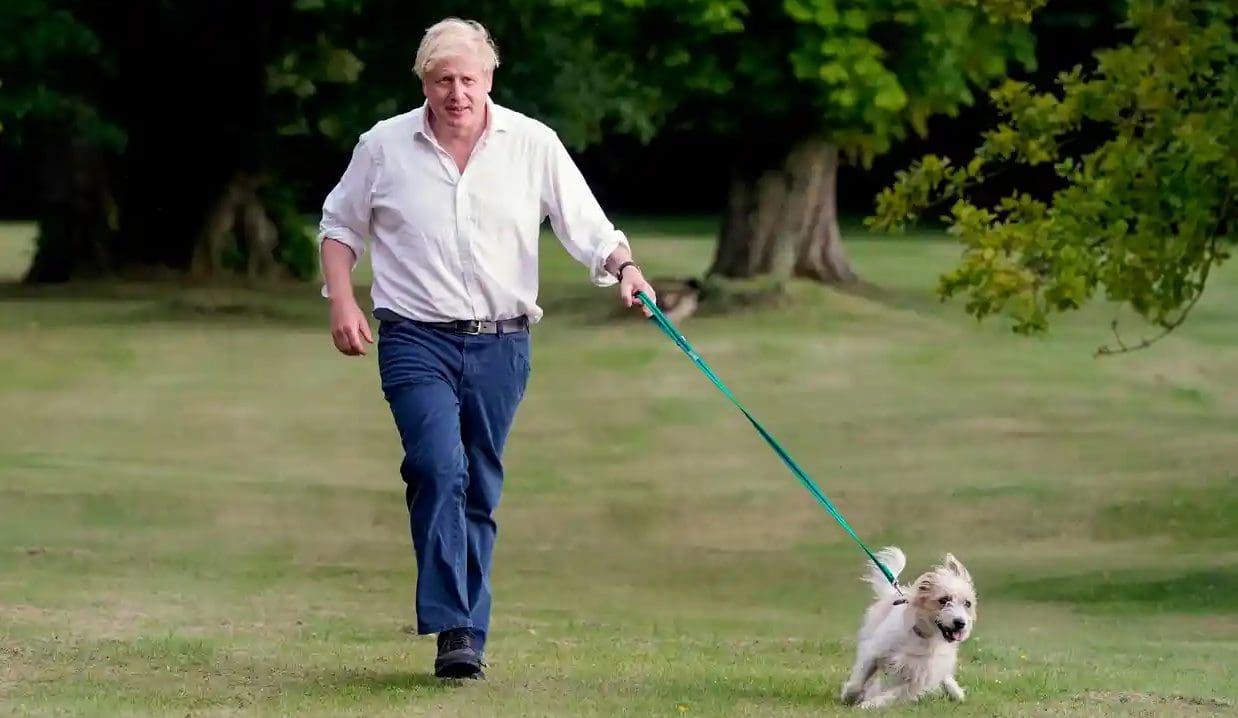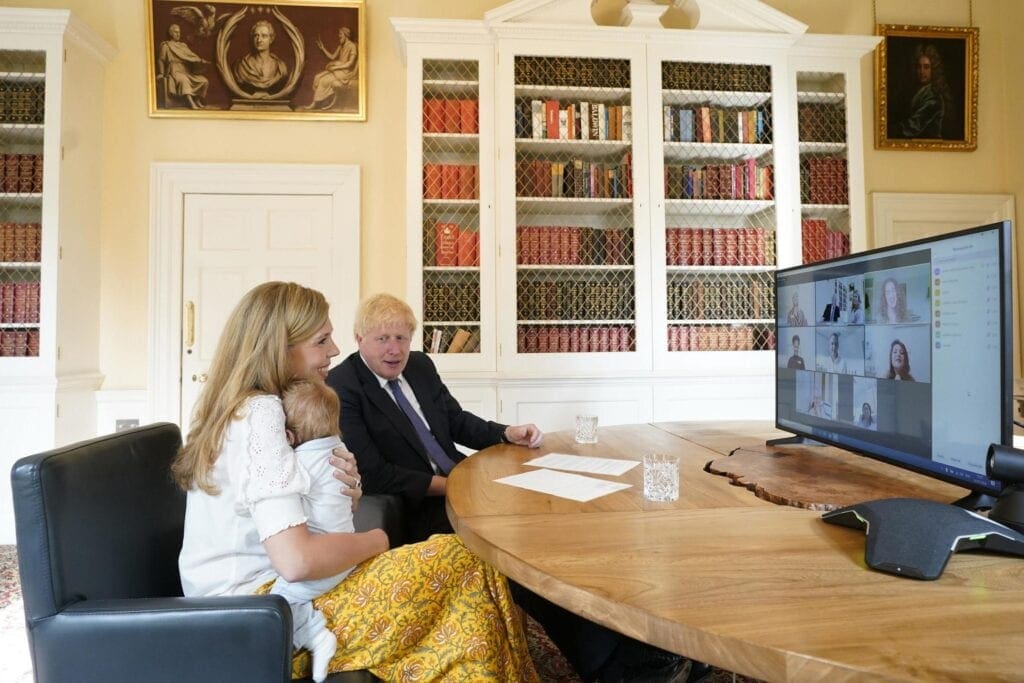Search Posts
Recent Posts
- Providence Delivers Summer Fun: Food, Water Play & Activities June 20, 2025
- Rhode Island Weather for June 20, 2025 – Jack Donnelly June 20, 2025
- Outdoors in RI: Time to Seastreak – Vets Access – Invasive Alerts – Clays 4 Charity at The Preserve – 2A TODAY June 20, 2025
- GriefSPEAK: Kill Switch – Mari Nardolillo Dias June 20, 2025
- Dr. Rosemary Costigan Named President of Community College of Rhode Island June 19, 2025
Categories
Subscribe!
Thanks for subscribing! Please check your email for further instructions.

Boris Johnson puts the UK on a diet after surviving Coronavirus
When people survive a life-threatening disease or medical occurrence, it can be life altering. Such is the case with Britain’s Prime Minister Boris Johnson. Having survived a serious challenge with coronavirus, necessitating a hospital stay, Johnson is engaging on a whole new personal challenge – one which he invites all of his countrymen to join him on.
“Better Health” is the name of a new weight loss campaign he has launched with the familiar gusto we know him to have. Having experienced the most serious part of coronavirus had to do with lung involvement, and knowing that researchers are now talking about a heightened risk for serious complications to those who get the virus and have added weight, of even 10 pounds or more, particularly carried in the upper body, Johnson now says, “I was too heavy, and it was dangerous.” He is now taping videos of inspiration, walking his dog, and has engaged his health officials in a new obesity strategy to beat coronavirus (COVID-19) and protect the NHS.
The new package of measures and ‘Better Health’ campaign announced to help people lose weight, include some “meaty” measures.
Americans can only imagine how long changes like this would take to happen – measurable in years.
- Ban on TV and online adverts for food high in fat, sugar and salt before 9pm
- End of deals like ‘buy one get one free’ on unhealthy food high in salt, sugar and fat
- Calories to be displayed on menus to help people make healthier choices when eating out – while alcoholic drinks could soon have to list hidden ‘liquid calories’
- New campaign to help people lose weight, get active and eat better after COVID-19 ‘wake-up call’
A raft of measures have been revealed as part of the government’s new obesity strategy to get the nation fit and healthy.
Obesity is one of the biggest health crises the country faces. Almost two-thirds (63%) of adults in England are overweight or living with obesity – and 1 in 3 children leave primary school overweight or obese, with obesity-related illnesses costing the NHS £6 billion a year.
The urgency of tackling the obesity time bomb has been brought to the fore by evidence of the link to an increased risk from COVID-19.
Living with excess weight puts people at greater risk of serious illness or death from COVID-19, with risk growing substantially as body mass index (BMI) increases. Nearly 8% of critically ill patients with COVID-19 in intensive care units have been morbidly obese, compared with 2.9% of the general population.
As the government continues to respond to this unprecedented global pandemic, ministers will today set out a comprehensive package of measures to help people take control of their own future by losing weight, getting active and adopting a healthier lifestyle.
Rather than focusing primarily on childhood obesity, the strategy represents a new focus on empowering adults to lose weight as well.
This plan is being launched alongside an exciting new ‘Better Health’ campaign, led by Public Health England (PHE), which will call on people to embrace a healthier lifestyle and to lose weight if they need to, supported by a range of evidence-based tools and apps providing advice on how to reduce the waistline.
The measures in this world-leading plan include:
- banning unhealthy food adverts – new laws will ban the advertising of food high in fat, sugar or salt (HFSS) on television and online before 9pm when children are most likely to see them. Ahead of this, the government will also hold a new short consultation on whether the ban on online adverts for HFSS, should apply at all times of day. Analysis published by Cancer Research UK from September 2019 shows that almost half (47.6%) of all food adverts shown over the month on ITV1, Channel 4, Channel 5 and Sky1 were for products high in fat, sugar and salt. This rises to almost 60% during the 6pm to 9pm slot – the time slot where children’s viewing peaks. Evidence shows that exposure to HFSS advertising can affect what and when children eat, both in the short term and the longer term by shaping children’s preferences at a young age. This is supported by the World Health Organization (WHO).
- ending ‘buy one, get one free’ (BOGOF) promotions – new legislation will restrict the promotion of foods high in fat, sugar, such as ‘buy one get one free’ offers. There will also be a ban on these items being placed in prominent locations in stores, such as at checkouts and entrances, and online. In the UK we spend more buying food products on promotion than any other European country and a survey from 2018 shows that around 43% of all food and drink products located in prominent areas were for sugary foods and drinks, compared to just 1% for healthy items. Shops will be encouraged to promote healthier choices and offer more discounts on food like fruit and vegetables
- calorie labelling – new laws will require large restaurants, cafes and takeaways with more than 250 employees to add calorie labels to the food they sell. Research shows eating out is becoming more common, particularly among families, with 75% of people visiting a restaurant, fast food eatery or getting a takeaway in the past week, compared to 69% in 2010. However, there is often a lack of information about the calorie content of these items and research suggests people consume around 200 more calories a day if they eat out compared to food prepared at home. This new measure will help people make healthier, informed choices as part of a balanced diet
- alcohol calorie labelling – a new consultation will be launched before the end of the year on plans to provide calorie labelling on alcohol. Alcohol consumption has been estimated to account for nearly 10% of the calorie intake of those who drink, with around 3.4 million adults consuming an additional days’ worth of calories each week – totaling an additional two months of food each year. But research shows the majority of the public (80%) is unaware of the calorie content of common drinks and many typically underestimate the true content. It is hoped alcohol labelling could lead to a reduction in consumption, improving people’s health and reducing their waistline
- expanding NHS services – weight management services will be expanded so more people get the support they need to lose weight. This will include more self-care apps and online tools for people with obesity-related conditions and accelerating the NHS Diabetes Prevention Programme. From next year doctors will be offered incentives to ensure people living with obesity is given support for weight loss and primary care staff will also have the opportunity to become ‘healthy weight coaches’ though training delivered by PHE. Separately, GPs will also be encouraged to prescribe exercise and more social activities to help people keep fit
- front-of-pack nutritional labelling – we will launch a consultation to gather views and evidence on our current ‘traffic light’ labelling system to learn more about how this is being used by consumers and industry, compared to international examples. Our ‘traffic light’ scheme is popular, with 90% of consumers agreeing it helps them make informed decisions when purchasing food. Research shows that people who look at front of pack nutritional labelling are shown to have healthier shopping baskets, fewer calories, less sugar, fat and salt content and higher fibre content
Prime Minister Boris Johnson, said, “Losing weight is hard but with some small changes we can all feel fitter and healthier. If we all do our bit, we can reduce our health risks and protect ourselves against coronavirus – as well as taking pressure off the NHS.”
Johnson very much aligns weight loss with being a patriotic undertaking.
Health and Social Care Secretary Matt Hancock said, “Everyone knows how hard losing weight can be, so we are taking bold action to help everyone who needs it. When you’re shopping for your family or out with friends, it’s only fair that you are given the right information about the food you’re eating to help people to make good decisions. To help support people we need to reduce unhelpful influences like promotions and adverts that affect what you buy and what you eat. Taken together, supported by an inspiring campaign and new smart tools, will get the country eating healthily and losing the pounds. We know obesity increases the risk of serious illness and death from coronavirus – so it’s vital we take action on obesity to protect the NHS and Improve our nation’s health.”
Dr Alison Tedstone, Chief Nutritionist at PHE, said: “These plans are ambitious and rightly so. Tackling obesity will help prevent serious illness and save lives. The main reason we put on weight is because of what we eat and drink but being more active is important too. Making healthier choices easier and fairer for everyone, and ensuring the right support is there for those who need it, is critical in tackling obesity. These bold measures will help us tip the scales on obesity. The argument for action is the clearest it’s ever been. Overconsumption of calories is one of the most significant contributing factors in becoming overweight. Figures show many adults are consuming 200 to 300 extra calories a day above recommended daily guidelines with children who are already overweight are consuming up to 500 calories more than they need every day. The environment we live in plays a significant role in tackling obesity: the information they are given to make those choices, the choices we are offered, and the influences that shape those choices. This will support individual choice and give families a fairer chance to maintain a healthy diet and lifestyle. The measures set out today signal a clear commitment from the government to support individual efforts and kickstart a national effort to tackle obesity.


